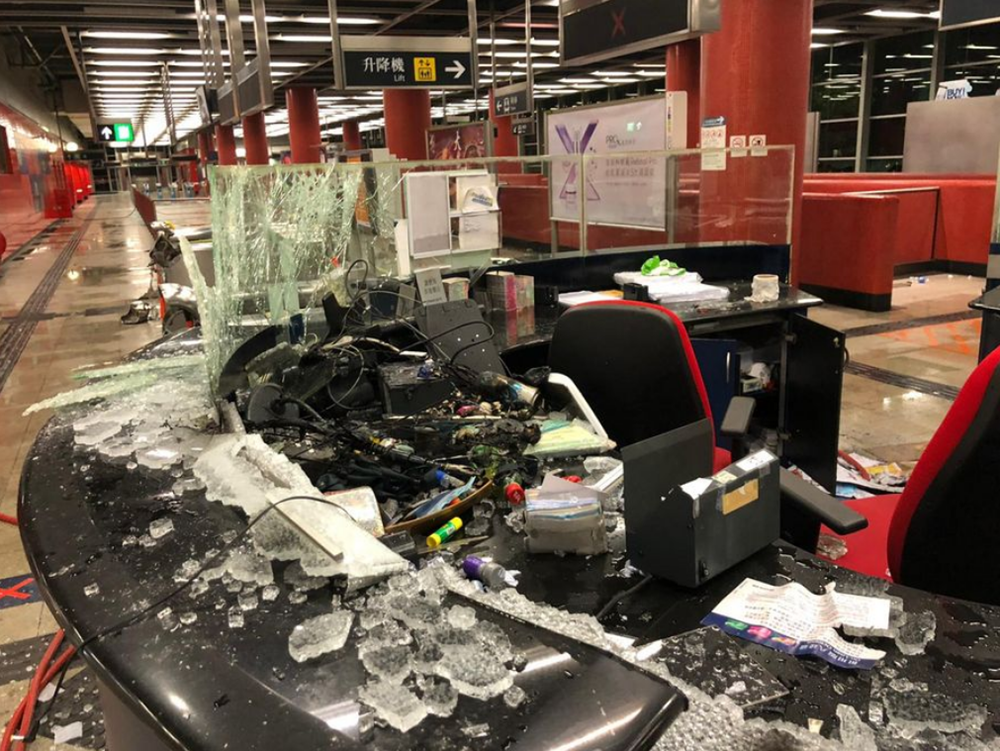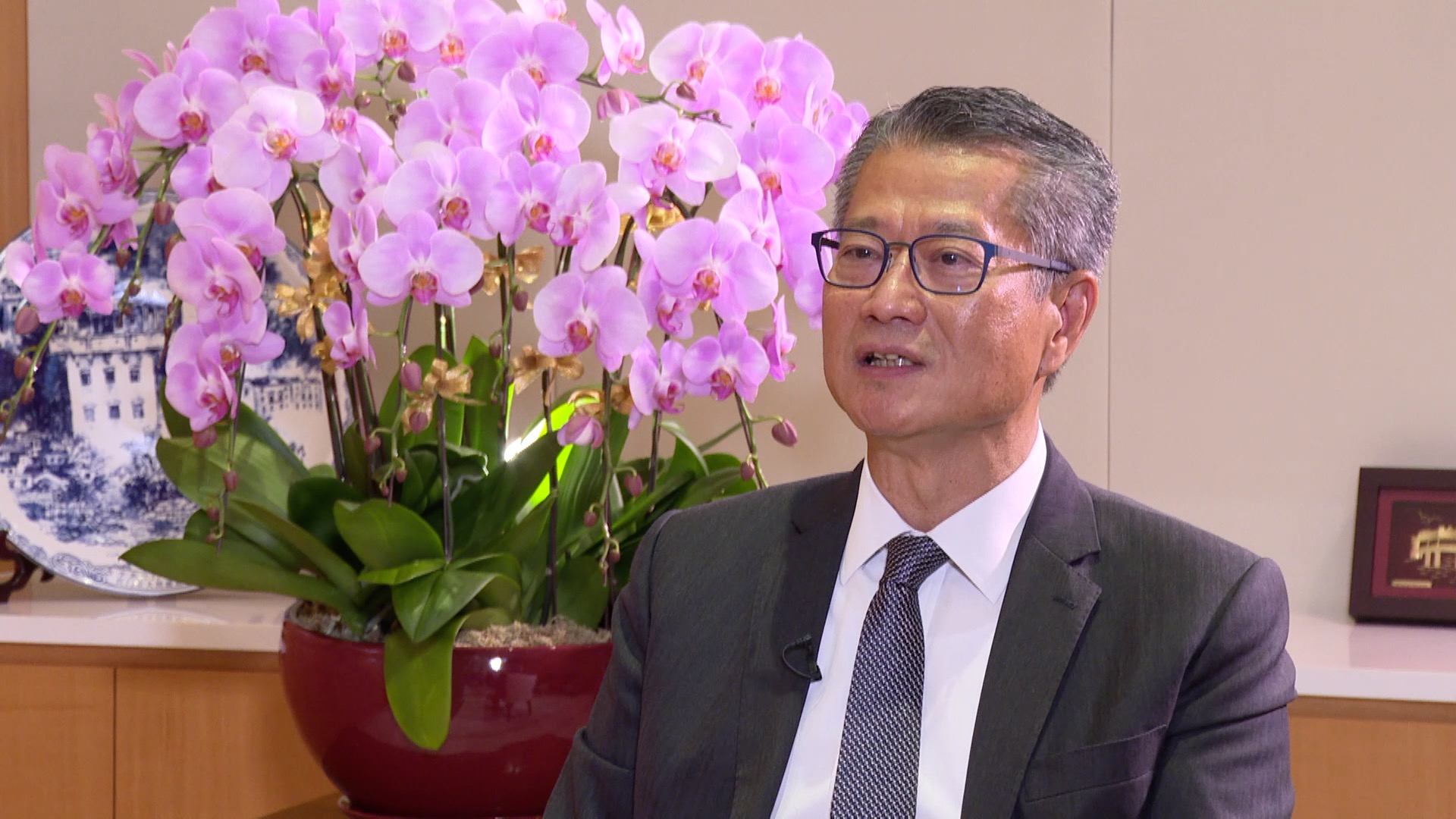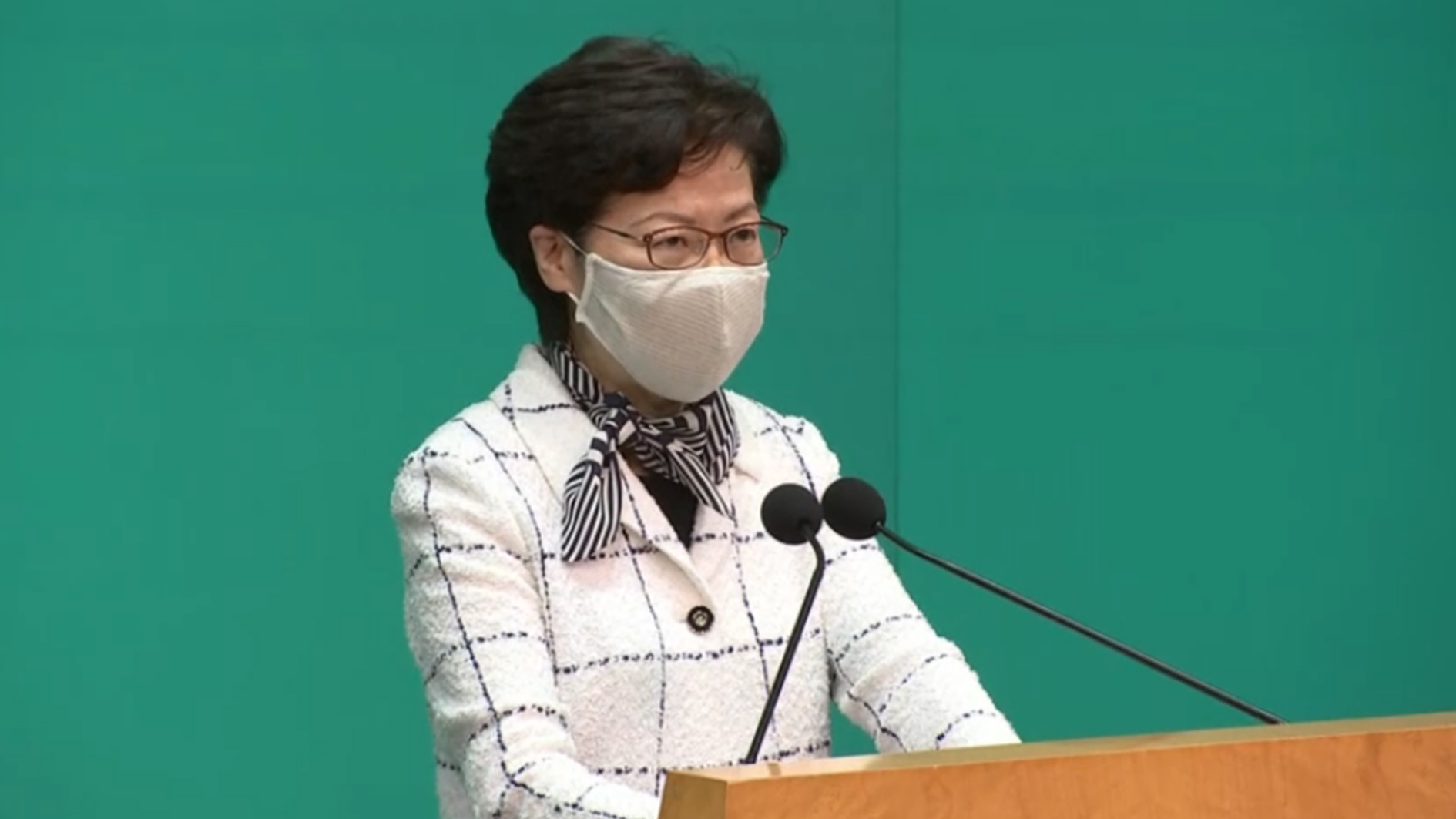The draft of a national security law for the Hong Kong Special Administrative Region (HKSAR) has been submitted to the 19th session of the Standing Committee of the 13th National People's Congress (NPC) for review.
The draft bill sets out criminal responsibilities for four types of crime: separatist activity, state subversion, terrorist activity and collusion with foreign forces.
The Standing Committee of the 13th NPC holds its 19th session from June 18 to 20 in Beijing.
Deputies to the 13th NPC voted overwhelmingly to approve a decision to make a national security law for Hong Kong on May 28. Then the NPC entrusted its standing committee to make the law to be promulgated and enforced in the city.
Why now?
Hong Kong has a constitutional responsibility to safeguard national security. But it has long been defenseless in terms of national security.
Read more:
Behind the scars: 1-year anniversary of HK protests
Under the Basic Law, the HKSAR's constitutional document, Hong Kong shall enact laws on its own to safeguard national security. It is known as Article 23.
However, Article 23 has become so stigmatized and demonized in Hong Kong that it is, in fact, very difficult for the HKSAR Legislative Council (LegCo) to fulfill its legal responsibility of enacting relevant laws.

An information counter at an MTR station smashed by violent protesters in Hong Kong, China. /MTR
An information counter at an MTR station smashed by violent protesters in Hong Kong, China. /MTR
Local and foreign anti-China forces have been taking advantage of this legal loophole, and activities jeopardizing national security have become increasingly rampant in Hong Kong.
Since last June, the Asian financial hub has witnessed rampant activities of "Hong Kong independence" organizations and violent radicals as well as blatant interference by external forces.
The trend of homegrown terrorism is posing a grim threat to the security of the HKSAR and the nation at large.
Considering Hong Kong's current situation, efforts must be made at the state level to safeguard national security and change its defenseless status.
Will people's rights, freedoms remain protected?
Yes. The legislation will in no way harm the daily lives of law-abiding Hong Kong residents.
The extensive rights and freedoms enjoyed by Hong Kong residents, such as freedom of speech, freedom of the press, the right of assembly and demonstration, the right to engage in academic research, to travel and enter or leave the HKSAR will all remain fully protected by the Basic Law, the Hong Kong Bill of Rights Ordinance and other laws.
Read more:
Here's why HK people shouldn't worry about the national security laws
One of the five basic principles in the draft decision is "substantially safeguarding the legitimate rights and interests of Hong Kong residents."
After the legislation is enacted, the personal safety and property of Hong Kong residents will be even better protected and their basic rights and freedoms better guaranteed.
03:28

Will the legislation hurt Hong Kong's economy?
The U.S. and Europe will not support Hong Kong in difficult times without financial and political benefits, but China's central government has always cared for Hong Kong and makes every effort to promote the Asian financial hub's development.
When talking with CGTN, Hong Kong's Financial Secretary Paul Chan also voiced support for the legislation. He said the foreign investors he engaged with said social stability, law and order are very important for an international financial center and investors and that they believe the new legislation will help do that.
"Although they are waiting for the details to be announced, overall, they see the need for this legislation in order for Hong Kong to return to a safe society with social stability," Chan said.
07:53

Support from the city
HKSAR Chief Executive Carrie Lam stressed Tuesday that the national security legislation for Hong Kong is "totally lawful and constitutional" and should not be challenged.
Lam made the remarks at a weekly news briefing where she reiterated that the legislation aims to fix the legal loopholes and strive toward the stability of Hong Kong society.
Meanwhile, people from all walks of life in the city have voiced their full support for national security legislation, expressing their desire for social stability and recognizing the importance of safeguarding national security.
Executive and Legislative Council member Regina Ip Lau Suk-yee, former Hong Kong security secretary, said the legislation is necessary to block gaps in Hong Kong's legal system.
Support from the world
Representatives of many countries voiced their support for the national security legislation for the HKSAR during the 43rd regular session of the United Nations Human Rights Council (UNHRC) in Geneva on Tuesday.
They agreed that Hong Kong affairs are China's internal affairs and that the legislation aims to safeguard China's national security.
(Cover: A resident signs in a street campaign in support of national security legislation for the HKSAR in Hong Kong, south China, May 23, 2020. /Xinhua)